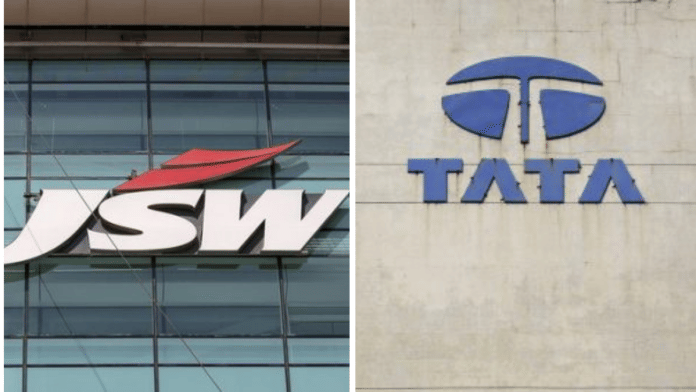New Delhi: India’s leading companies are far from meeting targets set for renewable energy and decarbonisation, a new report by think tank Climate Risk Horizons has highlighted.
The report ‘Slow to Switch’, released Tuesday, analysed 33 companies across seven industries to assess their adherence to India’s renewable energy and decarbonisation goals.
Five of these companies were large energy consumers, operating in the cement, steel, aluminium, textiles and fertilizer sectors, and the others dealt in information technology and fast-moving consumer goods.
“The analysis reveals a massive gap between companies’ renewable energy commitments and actions, showing that only around 5 percent of the annual electricity consumption of the assessed companies is sourced from renewables (solar and wind),” the report said.
Since the 2015 Paris Agreement, over 35 Indian companies have committed to climate action, pledging to reduce emissions through science-based targets.
India is in the fifth position in terms of the number of companies committing to reducing emissions and switching to renewable energy, following the United States (121), Japan (80), the United Kingdom (73), and France (46).
Experts say switching to environmentally friendly energy sources is of greater importance to India, where demand for materials such as iron, steel, cement and petrochemicals are set to explode as the economy continues to grow. For instance, the Union Ministry of Steel has estimated that the demand for steel will nearly treble by 2030.
At COP26, India’s 2030 decarbonisation target also revealed an ambitious goal — decarbonising energy to 50 percent and achieving 500 GW of fossil fuel-free generating capacity by 2030. This was a significant increase from its commitments in Paris.
Also read: Adopting Western practices to tackle climate change can be adverse for India — Economic Survey
Sector-wise performance
The report highlighted that while several Indian companies made ambitious commitments as members of the global renewable energy alliance, “almost none” were actually on track.
Steel companies including JSW, Jindal, Tata Steel and ArcelorMittal/Nippon Steel are currently meeting less than 0.05 percent of their energy requirement from renewable sources.
The report also found that textile companies such as Trident, Welspun, Arvind and Shahi have set targets in line with the Paris Agreement, but, on average, less than 3 percent of their energy consumption comes from renewable electricity.
Similarly, cement companies including industry giants such as Ultratech, ACC and Ambuja aimed to reduce emissions in line with the Paris Agreement, yet the share of renewable energy in their overall consumption was only 2.5 percent.
The report said the FMCG sector was the best in translating renewable energy commitments into action. In contrast, the fertiliser industry fared the poorest.
“Shifting to renewable energy is essential for energy security at the company level and the Indian economy as a whole. While a few large companies have started to take steps in this direction, a lot more needs to be done, and a lot quicker, if India is to meet its decarbonisation targets,” said Vishnu Teja, lead author of the report.
The findings also highlighted the significant potential of the heavy industry sector in driving decarbonisation in the Indian electricity system.
“The companies analysed have an annual electricity consumption of over 169 BU (Billion Units), which is more than double the electricity consumption of a state like Andhra Pradesh or West Bengal. However, less than 5 percent of this consumption currently comes from renewable sources,” the report read.
It added, “Strengthening and enforcing renewable purchase obligations will support the development of renewable energy capacity and energy storage technologies, lowering costs and increasing energy security for industries and the economy as a whole.” The think tank works on assessing and solving climate impacts on financial and environmental systems.
(Edited by Tikli Basu)
Also read: Water stress inevitable, what steel & coal sectors can do to avoid looming crisis






